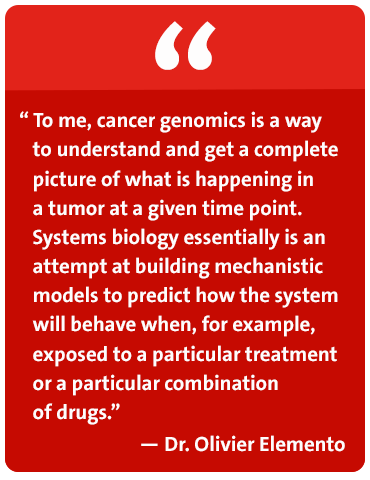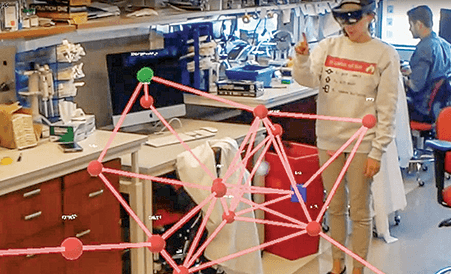The Next Level of Precision in Precision Medicine
Exploring Complex Datasets


Dr. Olivier Elemento
In the world of cancer genomics and systems biology, it is very difficult to visualize what is being measured. Artificial intelligence can be used as a way to make connections between genomics, single-cell measurements, and responses to therapy. By combining and integrating all of the different types of information, you can then make an accurate prediction.
Researchers at Weill Cornell have begun to embrace the concept of augmented reality, using tools that allow them to position complex medical objects in the real world that provide a perspective that cannot be accomplished by projecting information on a screen. The technology is designed to help scientists explore how to better visualize very complex datasets about cancer tumors and synthesize and present this information in a way that can facilitate the development of relevant hypotheses and ideas about data.

Augmented reality glasses enable researchers to navigate very complex datasets, including cancer drug networks and cancer mutations on protein structures. These 3-D images behave the same way real objects do, causing the digital images to blend in seamlessly with the real world.



